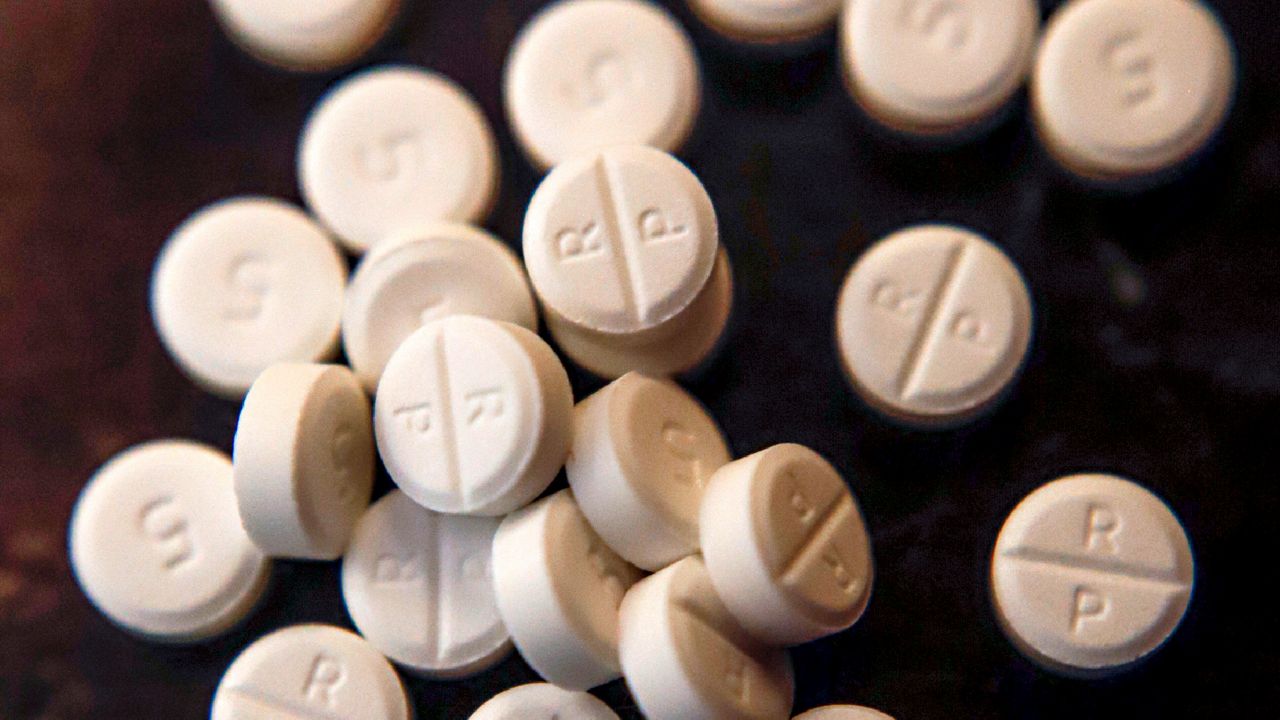Stressing that ending the nation’s opioid crisis is one of its top priorities, the Biden administration announced Thursday more than $450 million in new funding aimed at tackling substance abuse and drug trafficking.
What You Need To Know
- Stressing that ending the nation’s opioid crisis is one of its top priorities, the Biden administration announced Thursday more than $450 million in new funding aimed at tackling substance abuse and drug trafficking
- The announcement coincided with Overdose Awareness Day
- Thursday’s announcement includes $180 million in grants from the Centers for Disease Control and Prevention to states and municipalities to expand harm-reduction strategies, link people to life-saving care and make the latest data available to help develop strategies
- The White House Office of National Drug Control Policy (ONDCP) is spending an additional $20 million to support 164 new Drug-Free Community coalitions working to prevent youth substance use, bringing its total investment for the year to nearly $94 million for 751 coalitions in every state
The announcement coincided with Overdose Awareness Day. Also Thursday, Biden administration officials planned to meet at the White House with families whose loved ones died of drug overdoses.
“To all the families who have lost someone due to an overdose, we grieve with you. We’re with you,” second gentleman Doug Emhoff said in a call with reporters Thursday morning. “And we, the Biden-Harris administration — [President] Joe Biden, [Vice President] Kamala Harris and everyone else — will not stop fight until we defeat the overdose epidemic in our nation.”
Thursday’s announcement includes $180 million in grants from the Centers for Disease Control and Prevention to states and municipalities to expand harm-reduction strategies, link people to life-saving care and make the latest data available to help develop strategies.
The White House Office of National Drug Control Policy (ONDCP) is spending an additional $20 million to support 164 new Drug-Free Community coalitions working to prevent youth substance use, bringing its total investment for the year to nearly $94 million for 751 coalitions in every state.
The ONDCP is also spending $19 million to help communities combat drug trafficking and drug-related gun crimes, as well as $1 million on a public service campaign with the Ad Council to warn young people about the dangers of fentanyl.
Meanwhile, $80 million from the Health Resource and Services Administration will go toward helping rural communities prevent overdoses and expand treatment, and $57 million from the Substance Abuse and Mental Health Services Administration will help connect Americans to substance use treatment and recovery services.
“Together, these actions and resources will help so many people who are either struggling with substance use or at the risk of drug poisoning,” said ONDCP Director Dr. Rahul Gupta. “And they will help make our communities safer.”
Emhoff said CDC data showing that overdose deaths slowed considerably last year proves “that the efforts of the Biden-Harris administration are working.”
The administration’s other actions, officials said, have included the FDA authorizing the opioid overdose-reversing drug narcan to be sold over the counter and states, territories and tribal nations receiving more federal funding for substance abuse prevention and treatment.
According to the CDC, nearly 110,000 people died of drug overdoses in 2022, up 0.5% from the year before. That number had climbed 15% and 30% the prior two years.
“This crisis does not discriminate,” said Neera Tanden, President Joe Biden’s domestic policy adviser. “It impacts red states and blue states, urban and suburban communities. That's why President Biden named beating the opioid crisis and overdose epidemic a key pillar in his unity agenda for the nation.
“We know that overdose is preventable, addiction is treatable and we can disrupt the flow of illicit fentanyl in America,” she added.
However, the Biden administration’s handling of fentanyl and other illegal drugs entering the country through the Southwest border remains a popular line of attack by Republicans, including during last week’s first GOP presidential debate.
“When Joe Biden took over, he threw open the southern border of the United States, and the wave of humanity, the wave of fentanyl that's been eloquently described here is a wave of human tragedy across this country,” former Vice President Mike Pence said at last week's debate.
“We can have the military-grade technology to surveil our southern border to stop the flow of fentanyl and save 70,000 Americans a year,” said Sen. Tim Scott, R-S.C. “That should be the priority of this government.”



